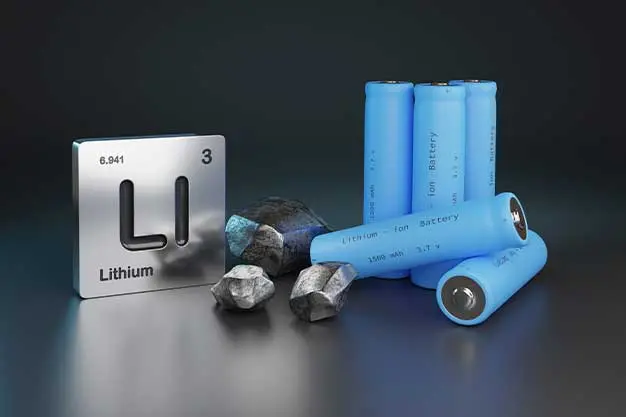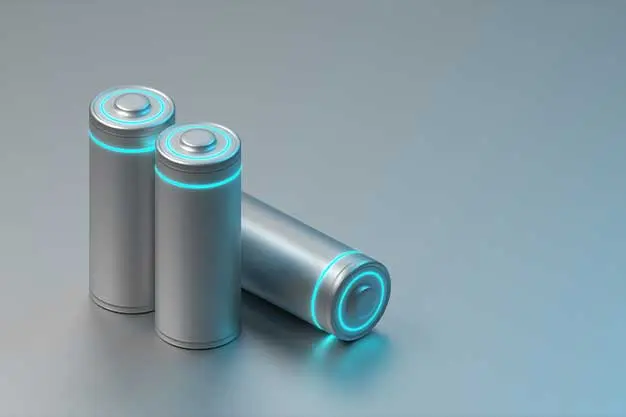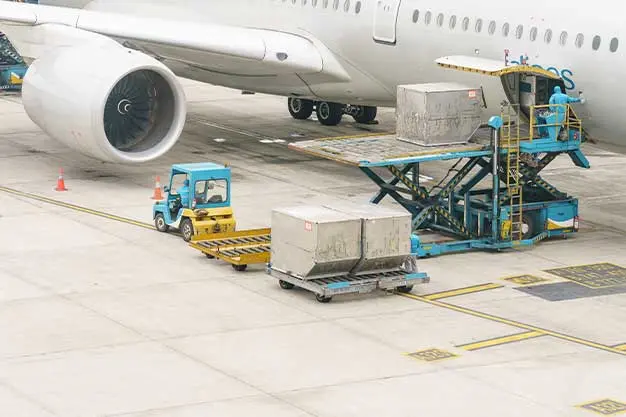7 min. read






A Complete Guide to Shipping Lithium Batteries Internationally
Not everyone can ship Lithium Batteries internationally. There are a lot of safety measure took place before anyone have the permission to ship Lithium batteries from anywhere. So it is necessary to abide by laws and safety precautions when shipping lithium batteries internationally to ensure efficient and secure movement of these hazardous products. Lithium battery shipping laws might differ from one country to another, making it a complicated problem for both individuals and companies.
You’ll likely need to send certain products with batteries when you move your belongings and personal effects abroad. As batteries might be hazardous, there may be limitations on shipping them internationally, especially by air.
This can create several questions. Today, with everyone having internet access, there is several unverified information. On forums, there is a lot of false information and bad advice on batteries and gadgets that contain batteries, whether they are lithium-ion or not. You will hear from lots of folks who say you cannot ship them. However, what are the guidelines for shipping batteries internationally? In this artivle we’ll dicuss the guidelines and proper ways to follow while shipping Lithium batteries.
What are Lithium Batteries?
The phrase “lithium battery” describes a group of batteries with various chemistries. Lithium metal and lithium-ion batteries are distinguished based on how dangerous they are. Batteries come in two main categories.
We have lithium metal batteries, which are the standard, non-rechargeable AA, or AAA size batteries. By not bringing these batteries and purchasing new ones once they arrive, most people moving abroad may avoid problems altogether. This second option differs for individuals who want to move lithium-ion batteries.
Electric devices like cell phones, cameras, gardening tools, and computers frequently contain lithium-ion batteries. Although they are made of slightly varied materials, their main distinction is that they are rechargeable.
Why Shipping Lithium Batteries are Problematic?
Lithium batteries are not like the simple batteries we use in our homes, most lithium batteries actually have very high energy density and flammable electrolytes. Because of their build, they tend to overheat and explode under conditions like contact with water, physical damage, and short circuits. That’s why lithium battery shipment needs to follow carrier restrictions. So in order to carry these batteries carriers must require proper experience and certifications.
Guideline for Shipping Lithium Batteries Internationally?
After meeting all the requirements, you can ship lithium batteries by sea or air. We will look at these requirements individually, but here is a general guideline for shipping lithium batteries.
• The battery and cell types must pass through every relevant UN tests.
• It must meet the packaging limits.
• All battery terminals must be protected to avoid short circuits.
• All batteries must have outer and inner packaging.
• There must be a complete documentation.
• Each package must have the required labels and marks.

Things to Consider while Shipping Lithium Batteries Internationally
Suppose you want to understand the process of shipping lithium batteries internationally. In that case, you should be aware that different laws and regulations may be in effect depending on the shipping method (consolidated freight or parcel shipping) method you choose. What to consider while transporting your batteries overseas by is listed below. We mainly focus on lithium-ion batteries, lithium-ion gadgets, and conventional lithium-metal batteries.
Shipping Lithium Batteries by Sea
All applicable rules apply when transporting items in a shipping container, including batteries. Included in this is a shared shipping container, often known as groupage. If they are kept in their respective devices or are put in a hard, sealed case, these frequently used rechargeable batteries can be shipped by sea consolidated freight.
The proper way to mail ordinary lithium metal batteries is to send AA or AAA lithium metal batteries in a durable plastic case. Alternatively, you might also keep them in a product with a durable plastic shell.

Posting Lithium Batteries by Air
Stricter International Air Transport Association (IATA) restrictions are in effect when shipping batteries by air due to the higher fire risk. Therefore, we usually advise AGAINST shipping batteries by airfreight in unaccompanied luggage.
Be aware that you must normally keep batteries in your hand luggage when flying and are not permitted to put them in your checked luggage. You must confirm the regulations regarding bringing batteries onto a plane with your airline and the airport.
These are the rules you must follow when transporting batteries abroad in the cargo hold of an airplane as part of your personal items.
The guidelines you must follow when sending lithium batteries by sea freight apply similarly when transporting lithium-ion batteries by air. You can send them together within their individual devices or separately in a box with a hardcover.
You need to be aware of one significant difference, though. You must learn the lithium-ion battery’s watt-hour rating, shown on the battery itself, or by contacting the manufacturer.
The battery’s capacity to produce power in an hour is measured in watt-hours. A lithium-ion battery must be rated at less than 100 watts per hour to be transported in a hard case. Additionally, you can only ship four by air, with a limit of 2 per box.

General Rules for Sending Lithium Batteries Internationally
It’s crucial to realize that different shipment kinds are subject to varied regulations regarding lithium batteries. The International Air Transportation Association (IATA) develops regulations for shipping lithium batteries via air. IATA is a body that establishes and upholds international standards for the aviation industry’s sustainability, efficiency, and safety.
IATA states that only two lithium batteries can be in any package you are shipping. It must always remain inside the electrical apparatus they are utilized for. You couldn’t separate the lithium-ion battery from the laptop in the previous case and send the two things separately. Not only must the laptop’s battery be kept inside, but it must also be switched off so it cannot mistakenly turn on while being transported.
These regulating bodies establish rules for correct packaging, labeling, transportation handling, and lithium battery recycling, to reduce the danger of fire and other risks during transportation and routine handling. There are, however, minor differences depending on whether you’re transporting lithium-ion batteries across the United States or UK to Europe or Worldwide.
How to Pack Products with Lithium Batteries?
Short-circuiting of the battery because of the battery terminals contacting metal objectives, other batteries, or conductive exteriors is one of the main concerns with the transportation of batteries and battery-powered equipment. Therefore, batteries must be packaged and shipped individually to avoid short circuits and terminal damage. This can include:
- Placing the batteries in their equipment or device.
- Packing or separating the batteries to avoid contacting other batteries.
- Using a better outer packaging system.
- Using rigid plastic to package the battery.
- Placing the batteries properly to avoid shifting, thereby leading to loosed terminal caps.
- Need to maintainActual Weight and Volumetric Weightlimit of these batteries as well.
Products with Lithium Batteries
Most people don’t know products that use lithium batteries. With online shopping becoming popular, most people don’t know that products have certain requirements when shipping lithium batteries internationally. Products with lithium batteries include:
- iPads
- Drones
- Tablets
- Automated external defibrillators (AEDs).
- iPhones
- Laptops
- Measuring equipment
- Mobile phones
- Medical devices
Shipping lithium batteries products are grouped as dangerous goods since they react sensitively to environmental factors, are highly flammable, and have a high tendency to short-circuit. Therefore, it is critical to label these products properly and ensure they meet all international shipping requirements.

Can you Mail Lithium Batteries?
You’ll be relieved to learn that the short answer to “Can you mail batteries?” is yes. But it requires more effort than simply placing the batteries in a package and sending it. You should pick a reliable courier service like Jetkrate with policies for transporting these hazardous materials if you want to lessen the risk of your lithium batteries bursting or being damaged in transit.
The fact that these couriers have trained staff familiar with lithium batteries’ operation and know how to handle them properly is the main reason you should trust them with sending lithium batteries by ground, sea, or air. They are also aware of all the intricate rules that must be followed to dispatch these batteries.
The Danger of Non-Compliance when Shipping Lithium Batteries Internationally
For several reasons, governments, airlines, and couriers have laid regulation guidelines to avoid any accidents. These batteries are dangerous, especially if not properly handled. However, if you refrain from complying with the requirements for sending lithium batteries products, your courier might reject your shipment.
Nevertheless, if you bypass the guideline and get caught, you might face profound consequences. Besides this, you face high penalties for your non-compliance with travel regulations. Therefore, it is advisable to stick to all guidelines to avoid incurring more costs to yourself.
Conclusion
Lithium batteries are here to stay, given the digital age in which we currently reside. They’re only going to play a bigger role in our lives as time passes. However, the stakes in this scenario are incredibly high, mainly if anything goes wrong. Following the stringent and extremely complex rules governing shipping lithium batteries internationally may be a headache for some, especially since they vary depending on how the battery is being sent.
FAQ
Is a lithium-ion battery dangerous?
Lithium batteries are classified as explosive due to the risk of thermal runaway, which can result in a fire. Lithium-ion batteries demand special shipping and handling procedures to reduce the risk of fire and protect the safety of persons and property during transportation.
Can you ship lithium batteries by air in large quantities?
Yes, you can ship lithium batteries by air in large quantities. However, there are guidelines and regulations for safe transportation for shipping batteries. The IATA and ICAO have set up standards for lithium battery shipping. All shippers and airlines must adhere to these standards.
Do shipping lithium-ion batteries cost more?
This would depend on several factors, including the courier and destination. Shipping lithium batteries internationally can come with additional fees because they are dangerous products. You can use Consolidated Shipments, which costs less than normal courier or shipments.
